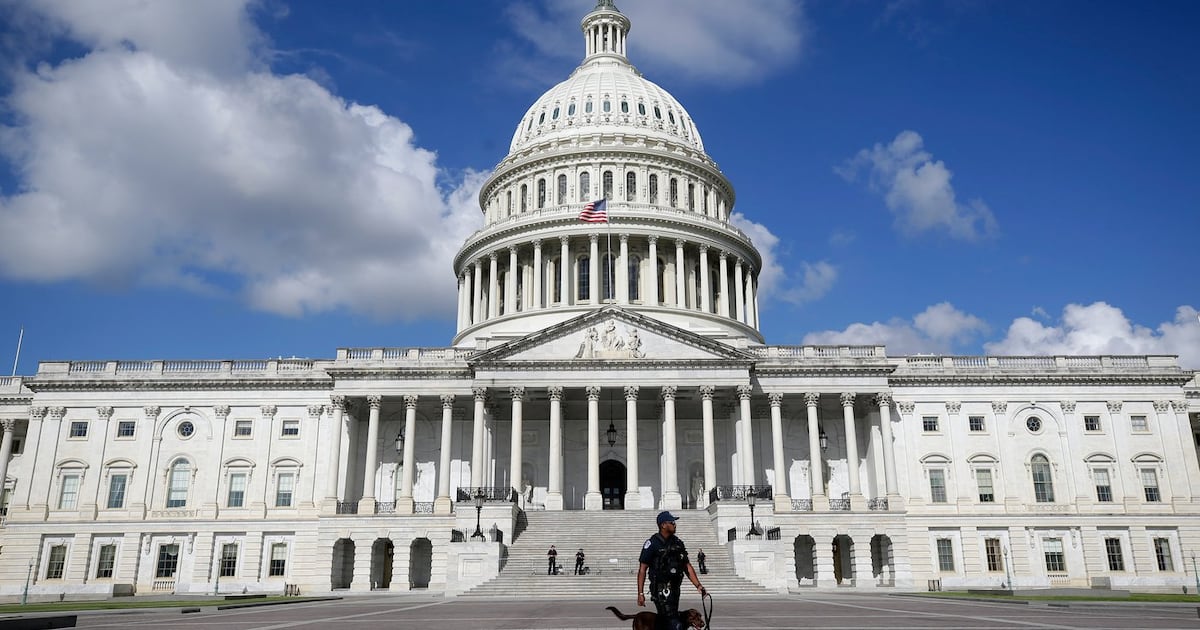Business
Congress Faces Urgent Government Shutdown as Session Resumes

The U.S. Congress is set to reconvene after a month-long August recess with a critical agenda, primarily focused on preventing a government shutdown that could occur on September 30, 2023. With federal funding at risk of running out, lawmakers will need to navigate complex negotiations, particularly between Republicans and Democrats, to ensure continued government operations.
Government Funding at Risk
The most pressing issue facing Congress is the impending deadline for federal funding. A failure to reach an agreement could lead to a government shutdown, affecting a wide range of services and agencies. To avert this, Congress must pass a short-term spending measure to maintain funding while they work on a more comprehensive budget for the fiscal year.
Republicans, who hold a slim majority in the House, will require Democratic support to extend funding. Yet, Democrats are expected to demand substantial concessions in return. Senate Democratic Leader Chuck Schumer faced backlash within his party after voting with Republicans to avoid a shutdown in March, complicating negotiations.
Additionally, recent actions by the Trump administration, including attempts to retract approved spending, are likely to further complicate discussions. The administration has proposed rescinding approximately $9 billion in foreign aid, a move that has drawn ire from Democrats who argue it could jeopardize broader negotiations.
“Trump is rooting for a shutdown,”
expressed Sen. Chris Murphy of Connecticut on social media, highlighting the contentious atmosphere as Congress prepares to return.
Contentious Senate Nominations and Foreign Policy Actions
As Congress resumes, the Senate will continue to grapple with the confirmations of President Trump’s nominees, a process that has faced significant delays. Frustrations peaked before the recess, with Republican leaders expressing dissatisfaction over Senate Democrats’ obstruction of nominations, which has left many of Trump’s administration positions unfilled.
Republicans are now considering changes to Senate rules to bypass Democratic stalling tactics. This potential rule change could dominate discussions in the coming weeks as the Senate seeks to address the backlog of confirmations.
On the foreign policy front, Sen. Lindsey Graham has been advocating for bipartisan sanctions against countries supporting Russia’s invasion of Ukraine. His proposed legislation, supported by 85 senators, aims to impose tariffs on nations buying Russian oil and gas. Despite this broad support, the lack of endorsement from President Trump has stalled progress.
Graham emphasized the urgency of this initiative, stating, “If we don’t have this thing moving in the right direction by the time we get back, then I think that plan B needs to kick in.”
Health Oversight and Investigations
In health policy, Secretary of Health and Human Services Robert F. Kennedy is scheduled to appear before the Senate Finance Committee to discuss his agenda following the ousting of Susan Monarez, director of the Centers for Disease Control and Prevention (CDC). Monarez’s resignation, along with others, stems from disagreements over the administration’s health policies, particularly regarding vaccines.
Sen. Bill Cassidy, the Republican chair of the HELP panel overseeing the CDC, has called for a delay in expert meetings on vaccine recommendations until Congress can investigate the recent leadership changes.
In the House, investigations into the late Jeffrey Epstein’s sex trafficking case are set to intensify. Representatives Ro Khanna and Thomas Massie are advocating for legislation requiring the Department of Justice to publicly disclose its investigation findings. This push for transparency is heightened by ongoing public interest and speculation regarding the case.
Additionally, the House Oversight Committee will conduct interviews regarding former President Joe Biden’s mental state during his time in office, with key former aides slated to provide testimony. Oversight Chair James Comer has indicated that public hearings may be expected in the fall.
As Congress returns from recess, the blend of urgent funding needs, political maneuvering, and ongoing investigations promises a contentious and busy session ahead.
-

 Politics4 weeks ago
Politics4 weeks agoSecwepemc First Nation Seeks Aboriginal Title Over Kamloops Area
-

 World5 months ago
World5 months agoScientists Unearth Ancient Antarctic Ice to Unlock Climate Secrets
-

 Entertainment5 months ago
Entertainment5 months agoTrump and McCormick to Announce $70 Billion Energy Investments
-

 Science5 months ago
Science5 months agoFour Astronauts Return to Earth After International Space Station Mission
-

 Lifestyle5 months ago
Lifestyle5 months agoTransLink Launches Food Truck Program to Boost Revenue in Vancouver
-

 Technology3 months ago
Technology3 months agoApple Notes Enhances Functionality with Markdown Support in macOS 26
-

 Lifestyle3 months ago
Lifestyle3 months agoManitoba’s Burger Champion Shines Again Amid Dining Innovations
-

 Top Stories2 months ago
Top Stories2 months agoUrgent Update: Fatal Crash on Highway 99 Claims Life of Pitt Meadows Man
-

 Politics4 months ago
Politics4 months agoUkrainian Tennis Star Elina Svitolina Faces Death Threats Online
-

 Sports5 months ago
Sports5 months agoSearch Underway for Missing Hunter Amid Hokkaido Bear Emergency
-

 Politics5 months ago
Politics5 months agoCarney Engages First Nations Leaders at Development Law Summit
-

 Technology5 months ago
Technology5 months agoFrosthaven Launches Early Access on July 31, 2025





















